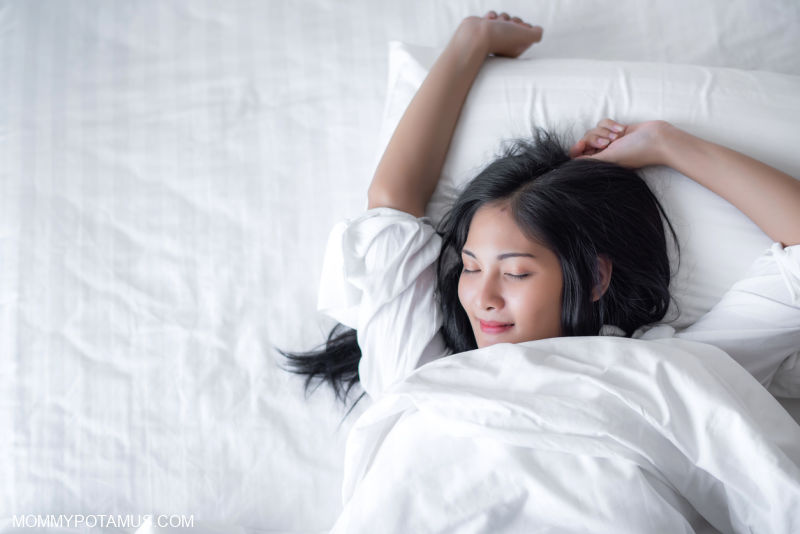
If you’ve ever turned on a white noise machine to drown out the sound of barking dogs, loud neighbors, or other disruptive sounds, you know how helpful they can be for falling (and staying) asleep. And that’s a good thing, because getting deep sleep makes us smarter, happier, more productive, more creative, and even keeps us looking younger. (1) (2) (3) (4) (5) (6)
White noise isn’t all shooting stars and moonbeams, though. In fact, it may actually make you feel more stressed over time, even if you don’t realize it’s causing an issue. Fortunately, with one simple tweak you can get all the benefits of white noise without the downsides, and in this article I’ll explain how.
We’ll dive into what you need to know about the different colors of noise – particularly white, pink, and brown – soon, but first I want remind you that none of these statements have been evaluated by the FDA, this article is not medical advice, and it is not meant to diagnose or treat any condition. Now that we’ve got that out of the way, let’s dive in.
Ready for a quick self-experiment?
Without analyzing things too much, click play and watch this video. No skipping ahead, okay? This guy has been covered by Harvard, Tufts University, CNN, the New York Times and more.
You bobbed your head at least a little, didn’t you? It’s okay, this is a safe place. I won’t tell.
Here’s the thing, though, your response isn’t necessarily due to your love (or lack thereof) of the Backstreet Boys. In Healing At The Speed Of Sound, authors Don Campbell and Alex Doman explain why:
Aside from songbirds, humans are the only creatures that automatically feel the beat of a song, according to Nina Kraus, a professor of neurobiology at Northwestern University. Music entrains our bodies – physically by activating the muscle-control centers of our brains that get us moving to the rhythm, and emotionally by guiding our moods into synchronicity with its own tone.”
That last part about guiding our moods describes one of the most fascinating aspects of brain entrainment, or how our brains mirror the sounds around us. When the sounds are meaningful and beautiful, our brains become more organized and integrated. When the sounds are chaotic and stressful, our brains struggle with basic functions.
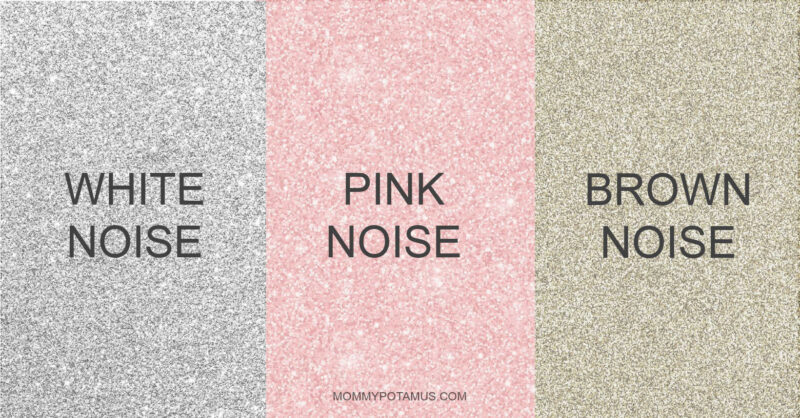
The Colors of Noise
For most of us, it’s not really sound itself that keeps us from falling asleep or wakes us up during the night – it’s abrupt changes in sound like a car alarm going off or the crack of lighting. Sound machines help by creating a cushion of sound that muffles the effects of those noises.
Though we typically call these machines “white noise machines,” there are actually several colors of noise with different biological effects.
White Noise
If you’re like me, you’ve probably always equated white noise with the sound of rain, or waves, or some other sound in nature. Interestingly, it’s not natural at all, and therein lies the problem.
White noise is actually machine-generated static that combines all the frequencies we can hear – about 20,000 tones – into one sound.
What you get is not the sound of rustling leaves or crashing waves, but a wall of static that blocks other sounds.
Of course, few of us (if any) can relax to the sound of scratchy static generated by a radio, or any other form. White noise manufacturers know that, so they embed the static within sound clips of waves or rain to make it more palatable. Though it seems like a sensible solution, research suggests it may have a downside:
White Noise Increases Cortisol Levels
White noise “has equal power across all frequencies,” meaning that the wall of sound contains both high-pitched and low-pitched frequencies. (7) High-pitched frequencies are like salt in a chocolate chip cookie recipe – a little makes the flavors pop, but a lot ruins the experience.
In fact, too much isn’t just unpleasant, it’s downright stressful. (8) According to this Scientific American article:
Several studies have indicated that stress resulting from ongoing white noise can induce the release of cortisol, a hormone that helps to restore homeostasis in the body after a bad experience. Excess cortisol impairs function in the prefrontal cortex—an emotional learning center that helps to regulate ‘executive’ functions such as planning, reasoning and impulse control. Some recent evidence indicates that the prefrontal cortex also stores short-term memories. Changes to this region, therefore, may disrupt a person’s capacity to think clearly and to retain information.
Though not definitive, recent research also suggests that noise-induced stress may decrease dopamine availability in the prefrontal cortex, where the hormone controls the flow of information from other parts of the body. Stress resulting from background noise, then, may decrease higher brain function, impairing learning and memory.”
So what explains this effect? One theory is that our brains are hardwired to interpret meaningful noise rather than static. According to Campbell and Doman, “Certain sounds, provided in the right context and combinations, can organize our neural activity, stimulate our bodies, [and] retune our emotions.”
When the sounds grow “more coherent – sounding more like a real melody – different parts of the brain interact in a more intense and consistent, or coherent, manner.” In contrast, when confronted with a disorganized sound, “your brain creates a stress response that can include a rise in blood pressure and shallow breathing.”
According to this perspective, even though we don’t hear the static underlying white noise consciously, our auditory processing centers do and they do their best to filter that into meaningful information for us. However, since our brains are not optimally wired to interpret static, it may leave us with the stress of constantly trying to figure out what we’re hearing on a subconscious level.

Pink Noise
If you’ve ever been lulled by the sound of crashing waves or rustling leaves, you’ve experienced the magic of pink noise. Like white noise, it contains every frequency the human ear can hear, but not all have equal intensity. The lower frequencies are more prominent and the higher frequencies are less intense, which creates an effect that’s less like abrasive static and more like soothing rain.
Unlike white noise, which has been shown in some studies to increase cortisol levels, research suggests that pink noise may have positive biological impacts on sleep quality and memory. For example, this study done with older adults found that pink noise increased slow wave sleep, also known as deep sleep.
Slow-wave sleep (SWS) is the phase of sleep in which memories are transferred from temporary to long-term storage. This process, called memory consolidation, is dependent on getting enough deep sleep. (9)
Another study done with young adults who took a daytime nap while listening to pink noise found an improvement in sleep quality and memory. Several additional studies have found benefits, but many have been relatively small and more research is needed to fully understand the potential benefits. (10) (11) (12)
Brown Noise
Brown noise emphasizes lower frequencies than pink noise . . . think rumbling thunder or the low roar of a large waterfall. There’s not a lot of research on its biological effects, but some people find it relaxing and sound machines sometimes include it as a setting option.
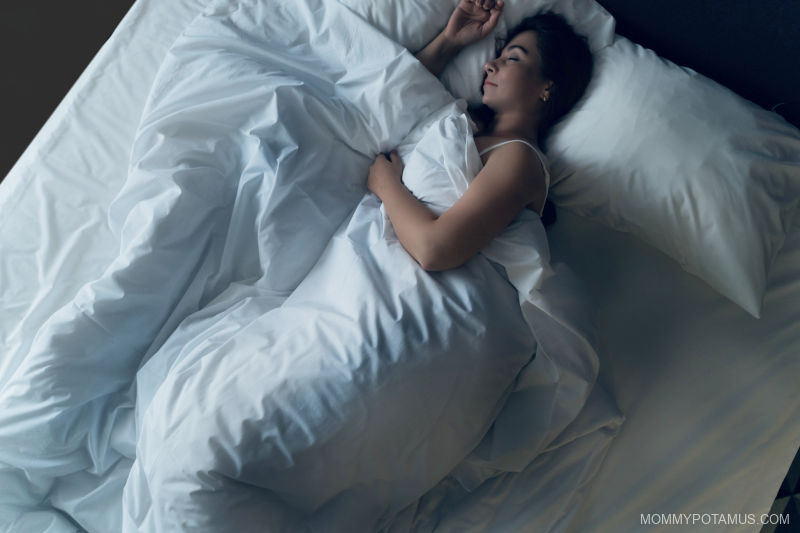
Choosing A Sound Machine
There are several apps that will allow you to play pink noise on your phone, but if your speakers aren’t awesome the sound quality probably won’t be, either. When shopping for a sound machine, here are some specific features that I would look for:
No Bluetooth or Wifi – I would avoid “smart” options in order to minimize EMFs in the bedroom.
Dim display or lights that can be turned off completely – Avoid any options that have a bright blue or green display because blue light at night can impair melatonin production.
Non-Looping – Some sound machines use a soundbite, like a five-second clip of ocean waves/rain/etc. played on a loop. In nature, nothing repeats on a five-second loop for eight hours straight, which got me wondering what kind of effect this might have.
According to this study published in the American Journal of Physiology, sounds have as much impact on our circadian rhythms as light. Could exposure to a repetitive 5-second clip throughout the night disrupt our internal biological rhythms? At this point, we don’t have any studies on that, but research does suggest that looping sounds do stress our brains out on a subconscious level . . . sometimes even on a conscious level, too. I’d look for a sound machine that is non-looping since that’s what’s found in nature.
Timer Vs. Manual Shutoff – Some sound machines run for a set period of time and then turn off, while others can be set to run until you manually turn them off. Many have both options, but not all do, so make sure that the sound machine you choose has the right option for you.
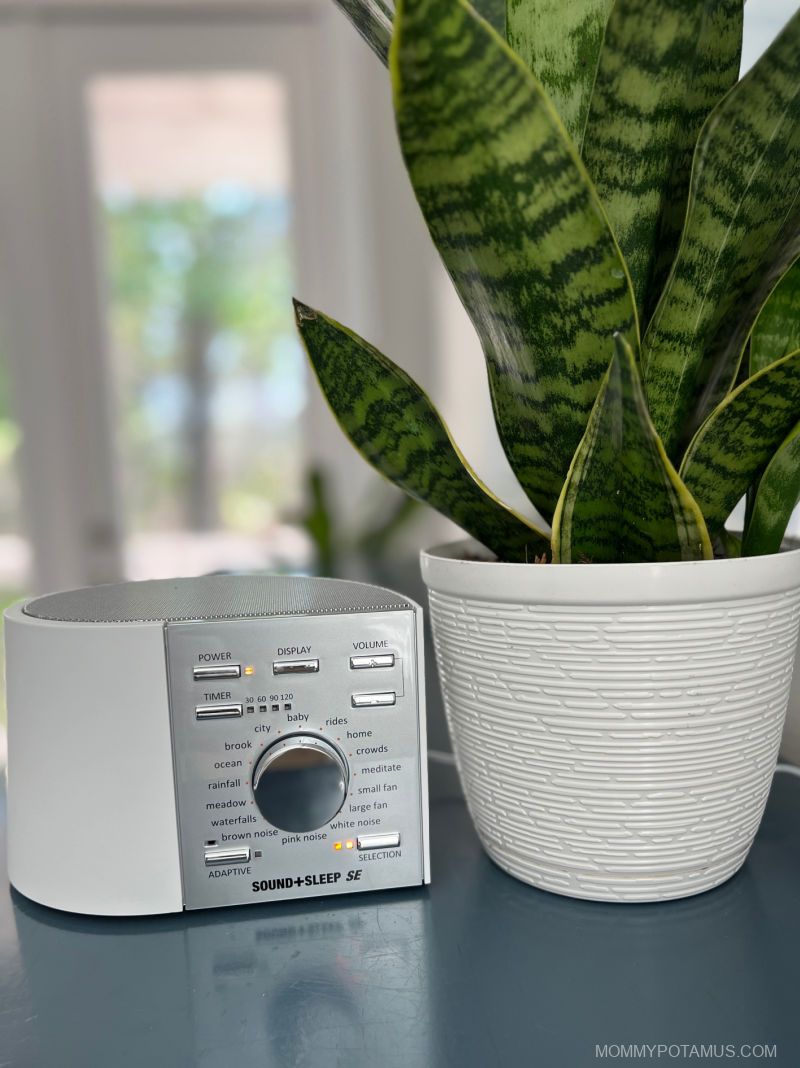
My Top 3 Sound Machine Recommendations
Based on the checklist above, the best sound machines I’ve found are:
1. Sound + Sleep SE
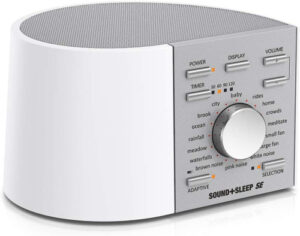
With 64 settings, the Sound + Sleep SE pretty much has it all.
Most of the settings are natural sounds that have been recorded in the environment – a few are fan sounds and such – but you won’t find any annoying or abrupt noises within the real-life recordings.
That’s because after the initial recording, a musician teases everything out to find the purest sounds, then writes a score with it. However, unlike most scores that are the same every time, the Sound + Sleep SE spontaneously composes these sounds in fresh ways so that there are no repeating loops.
Here are some other reasons to consider it:
- It has an adaptive microphone, which means that if your environment gets louder it will increase volume to mask it.
- There are a range of pink and brown noises to try. For example, the water sounds are mostly brown noise with a little pink sprinkled in, and the plane setting is on the higher end of pink (close to white) which can be helpful for tinnitus.
- The front panel dims so you’re not getting loads of circadian-disrupting light at night.
- Can play continuous sound all night, but also comes with an optional timer that can be set for 30, 60, 90 or 120 minutes.
Click here to check out the Sound + Sleep SE
2. LectroFan Evo
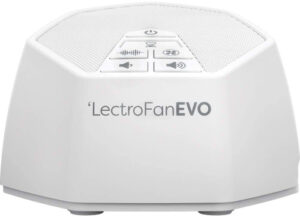
The LectroFan Evo has been around a long time and is one of the most respected manufacturers of high-quality (but affordable) sound machines. It creates a variety of different fan sounds, but it also creates a couple of ocean sounds, too.
The ocean sounds are a combination of waves and wind – the wave sounds are more pinkish, while the wind and fan sounds are mostly brown noise.
There are also ten sounds that range from pink to brown to white, PLUS ten fan sounds.
If you’re thinking “Fan sounds, as in plural? How many types of sounds can there really be?” – the answer is a lot. There are chuff sounds (blades hitting the air), the deep sound of air blowing, the hum of the motor, and more. If you’ve ever been lulled to sleep by the sound of a fan, chances are they have one that pretty closely matches it.
Like the Sound + Sleep SE, the LectroFan Evo is non-looping and can either play all night or for a specified period (30, 60, 90, or 120 minutes).
Click here to check out the LectroFan Evo
3. Honeywell Dreamweaver Sleep Electric Tower
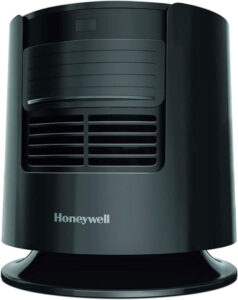
If the steady hum of a fan is your jam, the Honeywell Dreamweaver Sleep Electric Tower Fan with Pink Noise comes with three settings AND it can be operated with or without airflow.
In other words, it can be used as a cooling fan in the summer months, but in cooler months you can shut off the airflow to keep your room warmer. The Dreamweaver also comes with dimmable lights, a USB charging port, and an optional timer.
Click here to check out the Honeywell Dreamweaver Sleep Electric Tower Fan
Want more research-backed natural remedies?
No problem, I’ve created a free ebook for you – Kitchen Apothecary: 25+ Natural Remedies Using Ingredients From Your Pantry – as a gift for signing up for my newsletter. You’ll also get updates when I post about safe essential oils for pregnant/breastfeeding mamas, exclusive gifts and coupons (I was able to give away a jar of free coconut oil to anyone who wanted it recently!), plus other goodies.
Sign up using the form below.
This article was medically reviewed by Madiha Saeed, MD, a board certified family physician. As always, this is not personal medical advice and we recommend that you talk with your doctor.
Sources
1. Scientific American (2008) Sleep On It: How Snoozing Makes You Smarter
2. PBS (2012) Can Sleep Make You Smarter?
3. BBC (2013) How Sleep Makes Your Mind More Creative
4. American Psychological Association (2014) Sleep Deprivation: More Sleep Would Make Most Americans Happier, Healthier and Safer.
5. Stump, Scott (2013) “Nap Rooms” Encourage Sleeping On The Job To Boost Productivity
6. Harris, Shelby (2013) Sleep and Longevity: 5 Ways Sleep Keeps You Young
7. Lecher, Colin (2014) Why Does White Noise Help People Sleep?
8. Kumar, Sukhbinder et. al. (2012) Features versus Feelings: Dissociable Representations of the Acoustic Features and Valence of Aversive Sounds
9. Diekelmann, Susanne and Born, Jan (2010) Slow-wave sleep takes the leading role in memory reorganization
10. Papalambros, Nelly et. al. (2019) Acoustic enhancement of sleep slow oscillations in mild cognitive impairment
11. Zhou, Junhong et. al. (2012) Pink noise: effect on complexity synchronization of brain activity and sleep consolidation
12. Ngo, Hong-Viet V. et. al. (2013) Auditory Closed-Loop Stimulation of the Sleep Slow Oscillation Enhances Memory

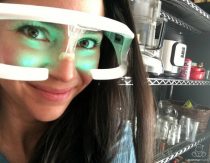
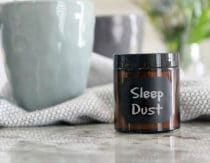


We use fans year-round to provide white noise. I wonder where their type of sound fits in with this? As a side note, it feels like there is an article every week about why some thing once thought as harmless or beneficial can actually be detrimental to our health. 🙁
Fans, air filters, and air conditioners all tend to have the same issues because high-pitched frequencies are not intentionally filtered out. However, I focused most of my research on machines created to make white noise, not ones that generate it by default. Let me see if I can get in touch with the author of “Healing at the Speed of Sound” and get his take on this.
I had this same question and look forward to your findings. Thank you!
I would love to hear the answer to this too. We use a fan in our son’s room; mostly because he loves the cooling affect but it also helps with white noise.
I emailed Alex Doman, author of Healing at the Speed of Sound to get his take on this. Here’s the gist of what he had to say:
Fans, air conditioners, humidifiers produce an “approximation” of white noise, not actual white noise which is every audible sound frequency at equal intensity. The dohm has an internal fan, so it too is an “approximation” of white noise. White noise has been generalized as a term to describe sound that blocks other sound, although that is not the strict technical definition.
The Scientific Article mentioned in post looked at the ambient noises that devices (not white noise machines, but everyday devices) produce and found that a stress response occurred in some people. So, yes, these devices may contribute to elevated cortisol in some cases, as the Scientific American article states.
Note from Heather – Here’s my personal opinion: Some of these devices may emit lots of high-pitched sounds, while others may not. I think they should be evaluated on a case-by-case basis. 🙂
I personally find fans very annoying. I can’t sleep with them on very well. When I listen to the white noise YouTube videos my brain makes a big thank you sigh of relief when I shut it off again. Its like someone had their hands holding my brain all around and then took them off.
Then I tried pink noise. That makes me want to shut it off immediately. It enrages me to listen to it. You could probably torture me with it.
Then I tried brown noise and its the only thing I can stand.
Why people want any kind of noise around them all the time escapes me. Of course I don’t like listening to lots of other sounds but the drowning out doesn’t make it better. At all
Micki,
That’s easy: it’s because modernity itself is harmful to us. We need to get off the Internet and go back to the soil. It’s very simple to mentally consider whether something like a white noise machine is natural or not. Man-made electricity is not, after all!
If modernity is so deadly, why do people who live in technologically advanced nations live so much longer?
The infant mortality rate would skyrocket if we all went back to the soil; people living in that environment seem healthier because the sickest don’t survive childhood.
Actually Streever, the US has one of the worst/highest infant mortality rates amongst the developed nations in the world.
Maybe so (I haven’t checked your “facts”) but she was comparing developed nations to not so developed nations or technology to going back to soil.
You’re comparing developed nation against developed nation.
People arent living longer and the quality of their lives are decreasing rapidly. America has the highest infant, mother mortality rate in the developed world. Technology is making people dumber.
Well…I don’t know if this answers your question, but, I always knew that the brain needs complete QUIET while sleeping. If there is any kind of sound, your brain is still working and doesn’t get the rest it needs.
Paula – That’s incorrect, the brain does remain very active during sleep. It recharges, cleans house (so to speak), continues to control body functions and a host of other activities. The brain doesn’t require QUIET to sleep, it depends on the person.
because she is SELLING something…!!!!
I have to thank you! Your article helped me realize that part of my 7-year-old’s sleep issues may be due to his oversensitivity to the noise of his fan. He was waking several times in the early morning, and struggling to get back to sleep. I decided to try having my children sleep with no noise, and not only have they both been sleeping better, but I have been too! The fan in their room had been slightly audible to me in my room. And whereas I am hyper sensitive to sound, it was keeping me awake! I thought sleeping in quiet would cause us all to wake to every random sound, but the opposite has happened. The 4AM milk truck, the 6:30AM bus in front of our home, my husband walking across the creaky wood floor at 7AM, the garbage truck at 730AM… none of it wakes us anymore! And I sleep with our 10-month-old, but still I’m able to stay asleep!
Life can be so much harder when you are sleep deprived. I’m very grateful I came across this read 🙂 Thank you!!
So are you saying that you use NOTHING to aid in sleep (sound machines)? That having normal house/neighborhood sounds don’t bother you now that you have turned off fans at night? Your comment confuses me as it is all about sound machines to help sleep, and you thank the writer for the information yet you say that you turned fans all off and are sleeping better, even with hearing normal nighttime sounds…..
Please clarify. Thank you
No, I wasn’t. 🙂
What is the app you use? I cannot find one called Sleep Genius on Android. Thanks.
You keep mentioning the effects during an 8 hour night -given that this is a long period of time I see th. concern. However, my son uses a Sleep Sheet (ocean, please, no whale songs), which has an automatic shut off at 45 minutes. Like others have mentioned, we have a fan for air circulation that runs all night. I’m curious if the research shows less impact when whitr noise plays for a short period of timr versus the extended over night use like many white noise machines.
It is my understanding that the fan is also probably a source of white noise, so if it runs all night I’m not sure how that would impact things. I’ll see what I can find out.
Based on Alex’s response (posted in the top thread above), the fan is an “approximation of white noise.” Without measuring it specifically it’s impossible to know the intensity of the high-pitched frequencies it may (or may not) emit. However, he does have some comments in general on everyday devices based on the Scientific American article mentioned in the post.
We too use an air purifier which creates a fan noise. I’d like to know where these sit but I’d be willing to try something better.
I’ll see if I can find out!
I emailed Alex Doman, author of Healing at the Speed of Sound to get his take on this. Here’s the gist of what he had to say:
Fans, air conditioners, humidifiers produce an “approximation” of white noise, not actual white noise which is every audible sound frequency at equal intensity. The dohm has an internal fan, so it too is an “approximation” of white noise. White noise has been generalized as a term to describe sound that blocks other sound, although that is not the strict technical definition.
The Scientific Article mentioned in post looked at the ambient noises that devices (not white noise machines, but everyday devices) produce and found that a stress response occurred in some people. So, yes, these devices may contribute to elevated cortisol in some cases, as the Scientific American article states.
Note from Heather – Here’s my personal opinion: Some of these devices may emit lots of high-pitched frequencies, while others may not. I think they should be evaluated on a case-by-case basis. 🙂
Interesting. I actually play a Mozart Pandora station while I sleep (It shuts off after an hour), for two reasons: There have been studies (which may have been debunked. Who honestly knows?) that show that they make your think harder during the day. And it also drowns out my mom in her office, which is right next to my room. She’s a telephone triage nurse and works overnights. I’ve never really thought of white noise machines as being bad for you, though.
We have a white noise machine that has several different sounds on it, and I use the “gurgling stream” setting for our baby’s daytime naps and at night only until we go to bed. Does the natural sound of a stream have the same effect as the white noise you’re talking about? For example, is the recorded sound of a stream similar enough to the sound you’d hear if you were camping in a tent by a stream? And is this harmful? I’d love to hear your thoughts. Thank you!! 🙂
Yeah, there’s gotta be more to the story. Nature is LOUD in many parts of the world (ocean waves, wind, bugs and other critters). The womb is also very loud.
Agreed, nature is loud! The thing about all the sounds you mentioned is that they are the type that has been shown to help our brains become more organized and integrated. I believe loud chaotic sounds are a different story. 🙂
Hi Marisa, I think maybe your machine is the type I mentioned about midway through?
“As mentioned earlier, most white noise is paired with a soundbite, usually a five-second clip of ocean waves/rain/etc. played on a loop. In nature, nothing repeats on a five-second loop for eight hours straight, which got me wondering what kind of effect this might have.
According to this study published in the American Journal of Physiology, sounds have as much impact on our circadian rhythms as light. Could exposure to a repetitive 5-second clip throughout the night disrupt our internal biological rhythms? At this point we don’t have any studies on that, but I think it’s a question worth asking.”
If so, one thing to consider is that the static sound is still there – it’s embedded in the nature sound. That said, this is an issue of good/better/best in my opinion. This is not something I think anyone should freak out over. I just wrote about it because I think there’s a better option out there that’s very affordable.
Okay, I see what you’re saying. It is something worth considering! Thanks for the clarification. 🙂
I have used Sleep Genius for a while now and love it! It is so calming and makes me feel like I’m being rocked to sleep. So much better than white noise.
So happy it’s worked well for you!
I’ve often wondered about this. We use brown noise, mostly to block out our noise (doing dishes, etc), and I used to turn it down once we were going to bed. My youngest sometimes won’t sleep unless I turn brown noise on for her, which is odd since we actually don’t play it for her normally. I wonder what is different about brown noise and how much it affects the brain? Both pink and white noise annoy me, so they’ve never been an option.
From what I’ve read people can prefer pink or brown noise based on individual taste, kind of like music styles 🙂
From what I understand fans are likely to have the same issue as white noise machines, but I’ve emailed Alex Doman, author of Healing at the Speed of Sound, to get his take. Will report back when I hear from him. 🙂
Heard back from Alex Doman – synopsis posted in the thread just above this one!
Hi,
I couldn’t find another place to ask about your ebook. I would like to know if you have included the recipe of soap making, such as sea mud soap, in your book. Thanks.
It does have a recipe for coconut oil soap and rosemary mint soap, but not the sea mud soap in particular.
I am surprised by how many people see the need to complicate sleep.I don’t see why we need machines making noise to help us sleep. If we get out kids hooked onto these kind of machines, does it mean that in the future, they cannot travel anywhere or sleep without something producing white or pink noise in the background?
I just try to reduce the noise in my bedroom and sleep. yes, the fan is on because it is hot not because I need a noise. Occasionally there is thunder. If it wakes me, it does. I do not think humans slept in a complete cocoon with no noise or a “white” noise environment. Just like the reearch about white noise was proved wrong, what will you do if the research about pink noise is superceded as being bad and blue noise comes in as better? I have never know anybody in Asia use these kind of things to make their children or adults sleep!
On the other hand what about those people who want to avoid all EMFs? Why have electrical devices on when sleeping?
Many people do sing lullabys to make kids go to sleep but that stops over time.
I don’t personally think it’s that we complicate sleep. Rather, I think that many of us are out of tough with certain natural rhythms that assist with sleep, and we seek to restore that connection.
In nature, we sleep in complete darkness much of the time, except when the moon is full. Our circadian rhythms even sync with the moon. However these days, most of us cannot sleep without curtains because light from street lamps and other homes shines in, thus suppressing melatonin production. In order to protect our circadian rhythms, we have to simulate our natural environment with curtains (or even blackout curtains). The Sleep Genius is a way to simulate the auditory environment we would be exposed to if we slept outdoors, only the delivery form is music instead of the sound of crickets, etc. The principle is organized sound that organizes the brain instead of noise.
Then wouldn’t it make most sense to play a recovering if crickets? Nothing doctored, just a recording of nature.
Some nervous systems are more sensitive than others. Especially children (and adults) with trauma or special needs. The white/pink/brown noise helps them calm their vigilance with intrusive noise. It isn’t a complication, more of a tool to help preserve restorative sleep. Which is imperative for healing physically and emotionally.
We also use a Dohm white noise machine – chosen because the sound is naturally generated (rushing air) not static or a recorded loop. Very interested to hear what the verdict is on this type of sound when the reply comes back from Alex Doman. Thanks for the article 🙂
Ana, here’s the gist of what Alex had to say:
Fans, air conditioners, humidifiers produce an “approximation” of white noise, not actual white noise which is every audible sound frequency at equal intensity. The dohm has an internal fan, so it too is an “approximation” of white noise. White noise has been generalized as a term to describe sound that blocks other sound, although that is not the strict technical definition.
The Scientific Article mentioned in post looked at the ambient noises that devices (not white noise machines, but everyday devices) produce and found that a stress response occurred in some people. So, yes, these devices may contribute to elevated cortisol in some cases, as the Scientific American article states.
Note from Heather – Here’s my personal opinion: Some of these devices may emit lots of high-pitched sounds, while others may not. I think they should be evaluated on a case-by-case basis. 🙂
Love this post! Thank you for all of your amazing research and follow up via the commenter’s questions. You give us a lot to consider as we think about how we soothe our babies to sleep. Keep rocking it!
I have been using an app called Mindwave2 for over a year now to help me wind down at night and fall asleep. It uses Isochronic beats instead of Binaural beats (which you really need to have headphones to utilize). It was only .99 in the app store if I remember correctly. I also like that there are beats that are at a higher frequency that can make you feel energized or help with headaches.
Following for the answer to the fan questions! Thanks!
I followed your link to the intellibed website, entered the coupon code and received the 10% off, but I didn’t see any sign of a free sleep genius. Am I missing something? Thanks for your post!
I’m so glad you found it helpful! The Sleep Genius is automatically included when you enter the coupon code before May 31st 🙂
I asked them about this in an email, and apparently the child mattress that I was ordering didn’t qualify for the Sleep Genius.
Hi Katherine! I’m so sorry that I misunderstood their offer. I emailed them and asked them if they could clarify so I could make sure to update my post, and when they emailed back they said they’d decided to go ahead and send a Sleep Genius to anyone ordering the child mattress as well. Hooray!
Hi Heather. I’ve been following Mommypotamus for many years – I am a huge fan of your work. Lately though I’ve become wary of bloggers that give us discount codes for their “favorite” products – b/c clearly you are getting something in return from the company for giving us this discount. I get that everyone needs to generate income, but how do we know that this mattress company you are recommending is really the best? How do we know that the research you did about whether it contains toxic materials or not is not biased? It would be really helpful if you could explain how you come to decide to endorse something, and even how that product is holding up in your household. Thanks for all that you do.
Hi Alyson, thanks for your question – it’s a really important one. I’m not sure if you caught the drama, but after researching essential oils for over six months last year I finally endorsed a company, then a week later another company – Plant Therapy – announced a partnership with Robert Tisserand, an essential oil expert whose expertise and safety advice I deeply respect. I had spoken extensively with Plant Therapy and loved how much effort they put into educating their customers about safe use, but decided not to endorse them because they were a young company and I just wasn’t sure they had the experience to properly interpret GC/MS reports and other indicators of quality. Of course, once they announced that Tisserand would be overseeing their quality that concern was put to rest, so I switched my recommendation to them.
Because of a contract I’d previously signed, the only way that I could recommend them was to do so without accepting any money at all. No sponsorships, no affiliate links, nothing, for six months. I happily did it even though it made it harder to cover the costs of running Mommypotamus, because I always have and always will put the families I serve over profits. As I write this Plant Therapy doesn’t even have an affiliate program. I link to them on Amazon, but those recommendations generate significantly less than what I would earn with other companies. I’m okay with that 🙂
The reason I bring this up is that usually these decisions go on behind the scenes and I never mention them. That particular situation played out publicly, which is why I thought it might be relevant to you. When I was shopping for a bed I was offered a free organic mattress with no strings attached, but instead I opted to purchase my mattress from intelliBED. My reasoning was simply that it was the mattress I wanted for my family, my baby, and my older kids. I decided to become an affiliate for them after actually trying and loving their bed, which since you asked I should mention is still one of my favorite purchases ever.
Though it’s a little different, I’d like to mention one more thing. I signed up with an ad network to help cover my costs, but then I found out there was no way to block infant formula ads on my articles about breastfeeding. Formula companies are notorious for offering “helpful advice” that sabotages a mother’s effort to breastfeed, and I want no part in that. For that reason I decided not to run ads until I can find a better solution.
For me this is all about trust. I put info out there for consideration and reflection, and I trust my readers to know what is best for their families. When I include an affiliate link, it’s an opportunity for those who found the info useful to support the site by purchasing through it. If the info wasn’t useful or relevant, no problem! Doesn’t hurt my feelings at all 🙂
Hi Heather,
Thank you so much for answering my question! I do remember the essential oil drama, and was glad I read that article with your recommendation before you took it down. I have bought some oils from plant therapy because of you.
The bed issue is challenging for me, mostly because I feel so strongly that my family sleep on something non-toxic and also because of a back issue that makes it hard for me to get comfortable – especially with squirmy kids around. I’m glad to know you are still happy with your bed, that helps a lot.
Again, thank you for being so upfront in your reply and thank you so much for the work you do and the information you put out there.
It’s 3 am, the white noise machine is bugging ME… This article really explains why I always feel like I’m hearing some high-pitched noise just barely in audible range. But when I was ready to jump in and buy the app RIGHT NOW… It’s only for Apple ios 🙁 I have an Android. Any chance of an Android version, or even a cd that could play on an existing sound system as another budget option?
https://play.google.com/store/apps/details?id=com.sleepgenius&hl=en
This looks to be the same company, on Android. It says it is compatible on my old HTC phone. Even better, the Android version is FREE.
I recently read that binaural sounds had to be played in each ear separately so that each ear hears a different sound. This does not sound in sync with nature to me. I also started reading some of the titles of the binaural music and how each one would change a person. I don’t know if I want music to have that much influence over me when I am not even awake to be aware of it. You mentioned binaural sounds as part of the genius sounds. Is there any way to know if there are sublingual messages that might not be a message we would choose if it was put into words? I would love to find help with sleep for our family but I am nervous about this.
You might also look into the app “Calm.” If you don’t use iOS it’s available on android. It has the option for noise and also has meditations. I LOVE it and it has helped drastically with sleep, anxiety, depression, etc. Between it and EO’s I am a whole new person.
what about sleeping with ear plugs? I sleep with ear plugs every night to block out sound and it works really well for me.
My kids have slept with a fan on in their rooms since they were babies. The fans keep air floor moving, the room cooler and it does help block out noise from the neighborhoods. They all have great sleeping habits. As far as having any effect on their brains…we have not noticed anything. My two oldest have graduated from High school with honors and currently at top notch colleges. Our youngest is following in their footsteps. They are all healthy and happy kids so I for one have not experienced any problems with using a fan in their or our rooms. The new apps maybe great for sleep but other facts come into play as well….room temp, stuffy rooms vs air flow, going to be hungry, caffeine and light vs. a dark room, pillow comfort etc.
Thanks for another interesting and informative post, Heather. How does one purchase the Sleep Genius Sound System on it’s own?
Heather,
Do you know if the Sleep Genius is similar to Holosync?
Doesn’t sleeping with an I phone present EMF issues? I try to turn my I phone off and keep it in another room at night. I thought you recommend and do the same?
Hi Jill, that’s a great question 🙂 As I mention in the post, “Another thing to consider is that the speaker system is completely wired, which means it emits no radio-frequency EMFs. If your going to use the phone app, I suggest turning it to airplane mode before going to sleep.”
Oh oops, I just saw this! LOL disregard my question. 🙂
I’ve read that plugged in electronic devices (lamps, etc.) still emit EMFs. Is this different from radio frequency EMFs? Is it less harmful, so not necessary to avoid? Thank you!!
Hi Marisa, yes they do emit ELF (extremely low frequency) emf’s, but not the RF radiation that cell phones and wifi devices do. I keep our Sleep Genius on the opposite side of the room from where we sleep. Everyone will have a different comfort level, but for us the benefits far outweigh the downsides.
Thank you so much!! I’ve been reading “A Silent Electronic Spring” by Katie Singer, and after being very overwhelmed and worried, I’ve been going through our home making what changes I can. Your insight helps a lot as I figure out what we CAN do!
Hi Heather,
This App sounds great, but I worry about the EMF radiation emitted by the iPhone. That’s why I don’t allow any electronics in the bedroom. What do you think is worse, the high-pitched white noise or the waves put out by the phones? Thanks!
If you’re concerned about EMF, then I’d suggest you put your phone on Flight Mode. This disables the antenna so turn the phone into an ipod. All it then emits is some extremely minor electrical output. Not nearly enough to be concerned about.
However, I feel I should point out that a lot of the EMF paranoia is completely onfounded and most people are being taken advantage of. Cases like Pong and the Bodywell chip are a total sham and really shouldn’t be allowed to sell their products. But people buy them because they believe the EMF transmitted by phones is a problem – which it isn’t. It’s non-ionising radiation – therefore the body doesn’t retain it. A mobile tower, or ADSL exchange, on the other hand can melt your brain with over exposure. And yes, I can back this up. I think the anti-EMF trend is the new Soy – and we should all know by now how bad Soy is for you.
Bluetooth on the other hand – well, if that’s left on it, burns a hole in my pocket. Just kidding but I can feel a weird sensation in my bum if it’s left on and in my back pocket. So avoid using this whenever possible in my opinion.
This was the best thing I have read all day. 🙂
Interesting article. But I have to ask how much commission you’re getting from Sleep Genius as you haven’t mentioned any other products or apps that are available.
I use the Relax Melodies app from the iTunes store – it’s less than $5 for the Premium app and works really well. I cannot recommend enough their binaural beats section. They have aso recently added some guided meditations, which I haven’t needed to use. The binaural beats work well enough for me.
The only thing that’s missing is being able to set a timer for the different beats so you can go from pre-sleep to dreamless sleep to dreams over a period of time. So I guess it’s not as sophisticated as the Sleep Genius but that’s no reason to not mention it, and the other apps.
It’s also available on the Google Play store.
I’m not an affiliate for Sleep Genius
Well…I don’t know if this answers your question, but, I always knew that the brain needs complete QUIET while sleeping. If there is any kind of sound, your brain is still working and doesn’t get the rest it needs.
That doesn’t make any sense. In the real world, nobody ever experiences “complete QUIET” unless they’re in a sensory deprivation tank. And even then, your brain will manufacture auditory hallucinations spontaneously.
In lieu of speakers, you could try “sleep phones”; they’re soft headband-style ear phones. I have a pair and they’re good, if a little pricey. I’m going to give the app a whirl along with these.
Hi,
Do you keep the Sleep Genius on continuous play all night long? It shuts off after a while but my daughter will wake up during the night if there isn’t any noise blocking the outside noises?
Thanks!
Yes, I keep it on continuous play 🙂
I used a fan for my son for 12 months as white noise. After doing some researching on the internet, I purchased an EMF reader and found that the EMF was really high in his crib due to the fan being on. Now I’m extremely worried that I put my son at risk by using a small fan. Is there anything you can say to calm this mom’s nerves? EMF throughout the house during the day is extremely low, but my little guy sleeps 16 hours/day.
Could you provide references to the research papers? I’m interested in exploring the research on this topic.
I moved in with my girlfriend, and she is the type that insists on sleeping with a fan (she also has adhd.) I notice that the fan bothers me, and I’m leery about it messing with my sleep. We’ve really been butting heads about this because she insists that “I’ll get used to it.”
My husband insists on a noisy fan running at night to drown out the hearing damage he’s done to his ears. I was raised sleeping in a quiet room and the fan wakes me repeatedly during the night. Don’t marry this girl—this is not a “we’ll compromise” issue. I don’t think the racket at night is healthy, regardless of what it does to my sleep. Please parents, do not raise your children to be dependent on noise to sleep—they are going to make someone miserable one day.
Do you think the Sleep Genius would also help with apartment living…we have an upstairs neighbor with a large dog who clamors around at various hours of my toddler’s bedtime, as well as a loud truck or motorcycles driving by sometimes AND wooden stairs outside our apartment! ? She wakes up crying too often because of these disturbances.
Very interesting article! I’ve never thought about it being bad for them aside from the actual volume. I’m going to try this at nap time and transition them into it, even though we have a loud house I’m legitimately worried about them waking up to! I’m not sure if it has been asked or not, but what are your thoughts on having devices in rooms?? I can’t afford to have that system, but I also don’t want an iPhone in their rooms. I’m not a scientist but have heard enough about radiation that I didn’t want them sleeping near it at least. What are your thoughts on it? Do they sell CD’s?
oops- nevermind. I’m reading above…
Hi Laura, I don’t think they have CD’s but one option is to use the iPhone in airplane mode so that it’s not emitting a signal.
Hi there .. My sister likes to use a white app on her mobile phone for her 11 week old baby.. but she then puts the phone 1-2 inches away from the baby’s ear.. I personally believe this to be to close for a developing baby’s ear but she disagrees.. seems to believe it is ok.. I believe it to be damaging and therefore a little cray . Can anyone help?
I used a fan on low speed when my daughter was a baby. We had barking dogs and she was a light sleeper. It helped her get a full night of rest, wake rested, and be a happy girl because she was well rested. Not to sound like one of those “get off my lawn” people, but we can read so many scientific journals and studies to suck the fun out of spontaneous parenting…filling ourselves with fear that we aren’t doing things right, that we are going to hurt our child by using a fan on low, or feed them the wrong things and affect their brains.
Flash forward about 22 years. I realize this is anecdotal evidence and your mileage may vary…but I didn’t have to put all this effort into parenting then, though we did know a lot more than our parents did, thank goodness. Yay for seatbelts and safe car seats! 🙂 My daughter just graduated summa cum laude from college. With not one B for four years. She is a great kid with a great brain. Relax. Your kids are going to be just fine. 🙂
PS— for every study saying one thing, there is a study saying just the opposite. A parent could confuse themselves with all the info they find on the internet. Here is a link from a reputable source that I find interesting.
https://www.cogneurosociety.org/whitenoise_bunzeck/
Hi Heather,
The theory you endorse does not stand to close scrutiny and contradicts the actual experience of many people. This is what happens when people fish for information and then put it together in anyway they feel like. I think you and your references are blowing smoke out of their behind
my two cents
If I’d known that this entire article was an advertisement, I wouldn’t have read it.
Is brown noise ok for brain? That is what we use on the free white noise app. It seems lower in tone than white noise. Even our sleep consultant said white noise was too high pitched so we use brown.
When was this article written? There doesn’t seem to be a date on it.
You can check the dates on the earliest comments to get a close idea of when it was written.
I think a fountain chime is best… Analog, natural. But without a gravity feed, a pump can be noisy, and the predictability of output too metronomic. A crackling fire too arduous to tend! The guilt andfear that exposes itself to me in complete silence… I just confess, to a priest of course, hehe. One sheep, two sheep, wooly black sheep
Thank you for so many folks sharing their experiences. and for this blog post.
I need to use ear plugs when I sleep to block all sound. and the best for me have been the Flents Quiet Time ear plugs which can be bought in small packs or 50 pair packs.
~~~~~~~~~~~~~~
I know other folks need to be able to hear their children or for some other reason cannot use these types of ear plugs. yet for some of us they are great.
~~~~~~~~~~~~~~~~~~~~~~
I’m an elder person with lifelong sensory processing challenges and Complex Post Traumatic Disorder, autistic and brain injured. and for over 30 years have used ear plugs while sleeping or napping.
and when I am in noisy stores blaring music as I shop.
I sometimes even use them during the day when I have lived in noisier dwellings with noisy neighbors and on busy streets.
~~~~~~~~~~~~~~~~~~~~~~~~~~~~~~
Some various offerings for those who read here:
Monroe Institute has some lovely offerings of which you may be interested. I began using their Human Plus series about a month ago. one of those is for sleep. which is pretty helpful.
~~~~~~~~~~~~
For anyone interested. there are sound insulating materials for buildings. for interior walls and exterior wall. I personally use Roxul insulation. they have one called Safe and Sound (for sound insulting and for fire protection), which may be called that or something different since when I purchased it years ago. Roxul/Rockwool.com…even their regular Comfortbatt insulation does a pretty darn good job and sound damping.
It completely blocked out the sound of a loud refrigerator on the other side of an interior wall, with my first use. so I found other ways to use it to quell sounds.
Blessings to all.
I am very sorry to say fat I found this article very contradicting I think you’re a really nice person but the truth is I have heard from reliable sources that it actually increases your function of your brain and helps you get alert when you wake up and on top at that white noise isn’t just limited to unatural sources The relaxing sound of actual waves or rain is still white noise so therefore white noise can be natural therefore white noise can not interfere with your sleep your brain does not fully meeting complete silence believe it or not contrary to belief why do you think sounds wake us up in the 1st place there are also sounds that your brain listens to all the time that helps it sleep there’s no such thing as a 100% quiet whoever told you that I can promise you was misinformed and buy them misforming you no offense thay made you misinformed Sorry but I just can’t agree with that it seems too much of a contradiction
Punctuation was invented for a reason. It helps people to understand what you mean ,when you use it!
Great post! Thanks
I never read so much nonsense in my life.
Are there any pink noise machines you would recommend that don’t require WiFi?
Hi
Thanks for all the info but as of today in Play store, I cant find Sleep Genius to download. Any help please. Kind regards
Omg – ok lots and lots of cris-cross and complete upside down things posted. Being a “road scholar” I have a bit I can share – I hope helps – minus any brand tools. Basically – I think we can ALL agree our body and our brains have a certain rhythms. Medicine of any type, can throw off our rhythms-. Some music is craved and sought out by some and other are completely repulsed. People that are used to living in the city, “any city” , have almost an impossible time adjusting to “ crickets “ let alone just the sound of a soft breeze. It goes both ways. – that brings me to the POINT. Sound is a way to help us sync or clears out those off center feelings. And if we can’t find it naturally-we can TRY to make it-or find a way to block it. Doesn’t matter. So I have seen a few comments posted about bioneural entrainment and Isochronic beats. These are real and potentially powerful ways to nudge our internal waves ( alpha, beta, theta and even gamma) into a different pattern. It’s possible-but- it won’t work for everyone-it won’t work against your will-it won’t turn you into a zombie or a super human computer-etc. It also will not be the same formula for everyone. Yeah it’s complicated-and takes effort. And that’s what all these apps and cd’s and machines try and solve for you-and won’t…..sure a few might get good results, but 4 out of 5 is still 80% effective and 3 out of 4 is 75%. – All of these off the shelve solutions need scrutiny and a close look. By the way, everything with a wall outlet plug gives off some sort of emf. Some more than others-no need for more tinfoil hats though. Bottom line (whew) slow down , take a breath, and look at whatever your trying to fix without cost or manufacturer reviews. We learned colors, we learned how to react to our environment but we never had to learn that the sound of a mother’s heart is soothing.
Hi there. I tried to download the app but it seems to be gone. Any idea why? Any other comparable ones you know of?
We have a HEPA filter that we sleep with to clean the air at night. Any idea if there is any point in using a pink noise machine and HEPA at the same time? I am assuming the Austin Air HEPA is white noise. Would the pink noise cancel out the effects of the white noise from the HEPA?
This is really interesting. I had found that many sound machines (none of your choices) made me cringe. Now I’m curious about Wholetones for sleep with it’s healing frequencies.
hi heather!
i’m wondering if you would share which sound machine you’ve found that you personally use/like best.
thanks so much for this helpful post!
Have these machines you recommend been tested for EMFs? I recently got a meter and tested my white noise machine, and was surprised at how high it tested, even a few feet away. Yikes! I’m looking for a new one, and I’ll definitely be looking into these!
Heather, I’m confused about the Pink Noise article. In the give-a-way you said that you recommended the Sound+Sleep SE, the one you use, but in the 3 recommendations you said the LectroFan Evo was your favorite. Am I reading this article wrong or missing something????
Thanks,
Sharon
I can see how that could be confusing! To clarify, the Evo is my favorite model of the Lectrofan specifically. There are other Lectrofan models including the Classic and Micro2
I really feel that we (Humans/Americans) are getting way too comfortable and starting to “need” too many electronics!!!
Yes, a lot of people have sleep issues. I believe that they are caused by: too little exercise, bad eating habits, too much stress, TOO MANY ELECTRONICS in their lives.
My take: we don’t need another electronic to help us sleep. We simply need to relax a bit, get some exercise, eat better and try to lower our stress levels!
It’s impossible for everyone to afford all of the “new next best things for health”!!!
Simplify, and get out into nature more. That alone will help you get better sleep.
Third one is no longer available. Another ?
I’m not aware of another option, sorry!